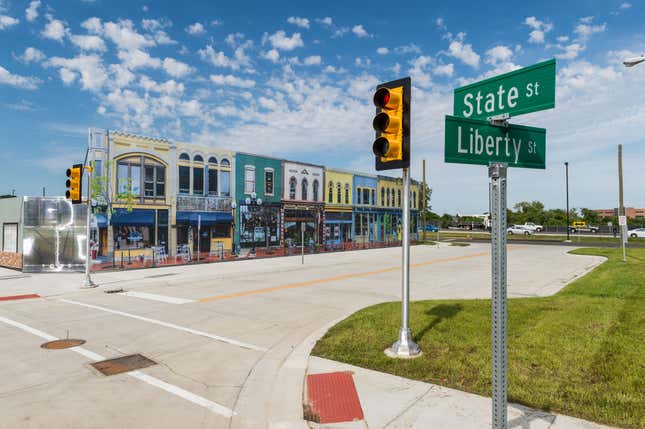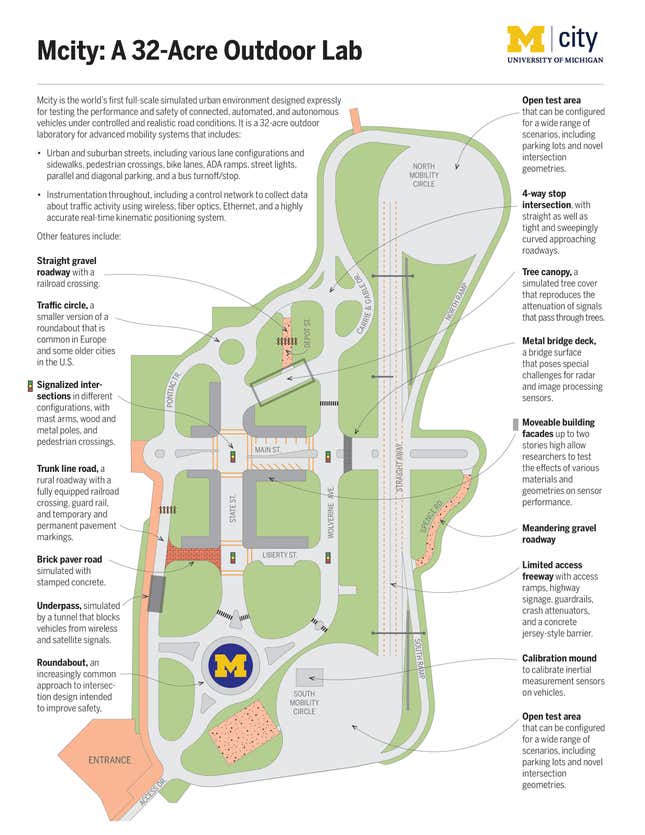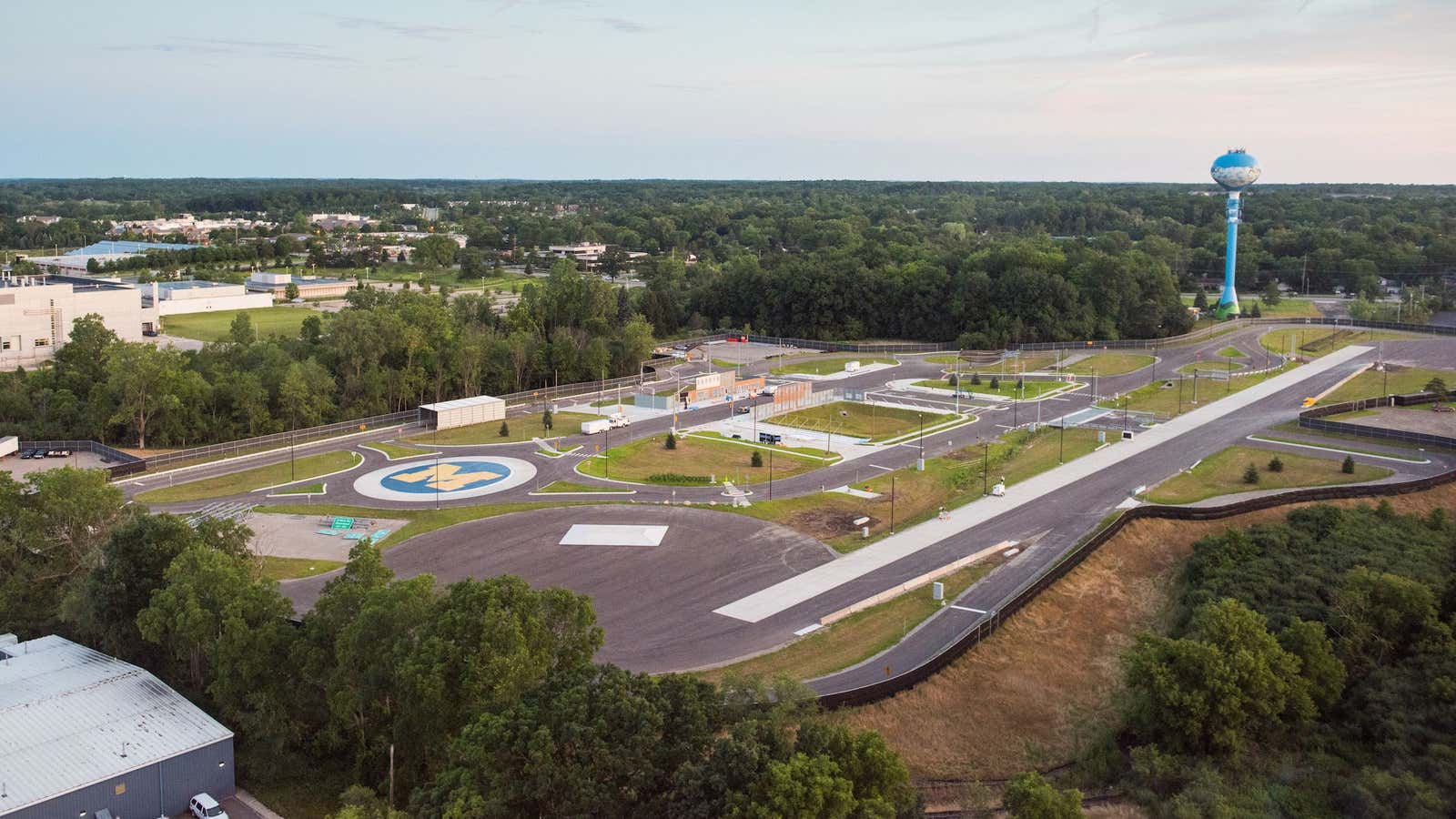It’s like a dream world for children obsessed with toy cars—and scientists obsessed with auto inventions.
On July 20, the University of Michigan opened a $10 million, 32-acre vehicle testing lab called Mcity to allow researchers, car makers and technologists to tinker with environment-connected and self-driving cars in a simulated real-world environment.
Mcity, located at the University of Michigan’s North Campus Research Complex in Ann Arbor, is equipped with sidewalks, a downtown Main Street, roundabouts, traffic lights, parking meters, and even a stretch of highway—all built to a life-sized scale. The area is also wired with networked sensors to collect data as cars roam through the lab.

Some road signs are even defaced by graffiti, and lane markings occasionally look old and faded, in stark contrast with the lab’s vision for test cars.
Peter Sweatman, director of the Michigan Mobility Transformation Center (MTC), says that testing will focus on self-driving cars and technologies that allow cars to communicate with other vehicles and local infrastructure.
Mcity has adjustable lane sizes to see how widening and narrowing lanes will effect the performance of driverless cars. One of its longest roads runs perfectly from north to south, which should help test the accuracy of GPS systems. Traffic lights can be changed at random and even in non-sensical ways to help stress-test an autonomous vehicle’s abilities to cope with changes in the environment.
Mcity plans to test environment-connected vehicles at its center, and then deploy 9,000 of these connected vehicles in Ann Arbor, Michigan. Afterward, the MTC will work with the US Department of Transportation to release 20,000 connected vehicles into the real world of southeast Michigan. The ultimate goal of the project, Sweatman says, is to move past environment-connected cars and implement a system of fully-automated cars in Ann Arbor by 2021.

Sweatman has a Field of Dreams philosophy about the lab, believing that ”all of the main players in the [futuristic car] ecosystem” will come to use the facility.
At Mcity’s opening event on July 20, car companies and tech firms eagerly showed off their latest gizmos in the faux metropolis. According to arstechnica, Honda and Qualcomm demoed a system that communicated between cars and pedestrians’ cell phones to alert drivers of pedestrians in their path and engage automatic braking where appropriate.
At the event, Michigan Governor Rick Snyder praised Mcity, which was funded by Michigan’s department of transportation and other corporate sponsors, for re-establishing Michigan as the automotive industry’s innovation hub. Senator Gary Peters said Michigan, not Silicon Valley, should be leading the world in auto technology.
